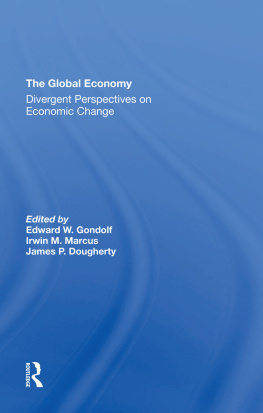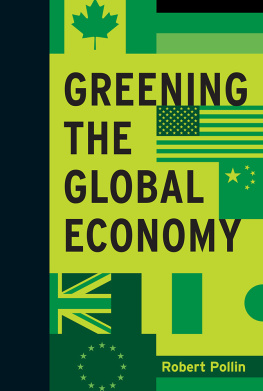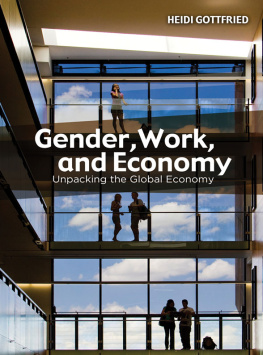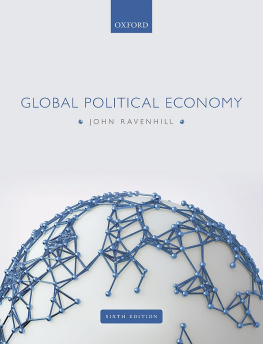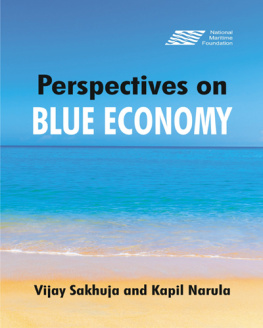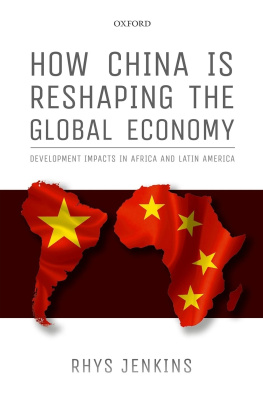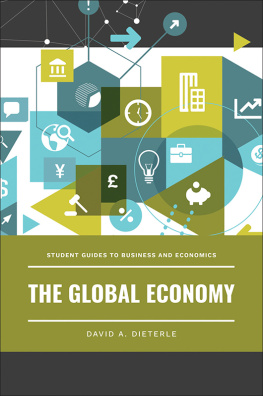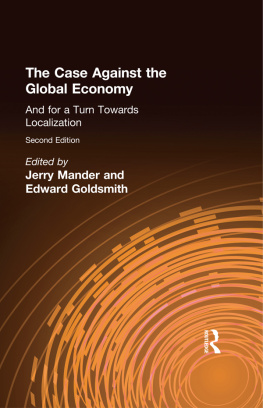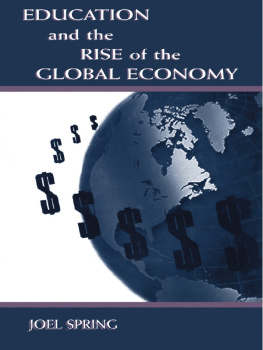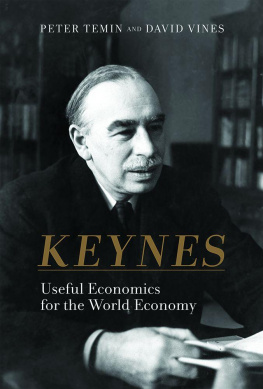The Global Economy
About the Book and Editors
This collection of contemporary essays addresses the imposing changes occurring in the global economy and presents thoughtful policy options for managing them. The debate among these experts vividly illustrates the dimensions and consequences of the new global economy for the U.S. population and suggests appropriate policies for mitigating its impact.
Contrasting perspectives on the origin and trends of the current international economic order are offered. Each contributor presents a complex position in nontechnical terms and with helpful examples. The result is a work accessible to readers from a variety of professions.
Edward W. Gondolf is associate professor of sociology at Indiana University of Pennsylvania and a research associate of the IUP Center for Community Affairs. Irwin M. Marcus is professor of history at Indiana University of Pennsylvania. James P. Dougherty is codirector of the Center for Alternative Studies in Pittsburgh and an instructor of sociology at Indiana University of Pennsylvania.
Published in cooperation with Indiana University of Pennsylvania
The Global Economy
Divergent Perspectives on Economic Change
edited by Edward W. Gondolf , Irwin M. Marcus , and James P. Dougherty
First published 1986 by Westview Press
Published 2019 by Routledge
52 Vanderbilt Avenue, New York, NY 10017
2 Park Square, Milton Park, Abingdon, Oxon OX14 4RN
Routledge is an imprint of the Taylor & Francis Group, an informa business
Copyright 1986 by Taylor & Francis
All rights reserved. No part of this book may be reprinted or reproduced or utilised in any form or by any electronic, mechanical, or other means, now known or hereafter invented, including photocopying and recording, or in any information storage or retrieval system, without permission in writing from the publishers.
Notice:
Product or corporate names may be trademarks or registered trademarks, and are used only for identification and explanation without intent to infringe.
Library of Congress Cataloging-in-Publication Data
The Global economy.
Essays... drawn from a conference on Industry and
society at Indiana University of Pennsylvania
Acknowledgments.
1. Economic history1971- Congresses.
2. Industrial productivityCongresses. 3. International
economic relationsCongresses. 4. Economic policy
Congresses. I. Gondolf, Edward W., 1948- .
II. Marcus, Irwin M. III. Dougherty, James P.
IV. Indiana University of Pennsylvania.
HC59.G574 1986 330.9'048 86-9260
ISBN 13: 978-0-367-29257-7 (hbk)
Contents
- PART I:
CHARTING THE DIMENSIONS - PART II:
FACING THE DILEMMAS
- PART I:
CHARTING THE DIMENSIONS - PART II:
FACING THE DILEMMAS
Guide
As editors, we wish to thank the distinguished contributors for making this book possible. Their willingness to forthrightly pose their positions and subject themselves to debate will, no doubt, also be appreciated by the varied readers of their essays in this volume. Together the contributors present a model of exchange that must be continued on many levels, if the United States is to come to terms with the new global economy.
The essays that make up The Global Economy are drawn from a conference on "Industry and Society" at Indiana University of Pennsylvania (IUP). IUP is a state university of 13,000 students situated sixty miles northeast of Pittsburgh, The university recently convened a series of three annual conferences, culminating with the theme of the global economy's impact on the development of Western Pennsylvania and the United States in general.
Several individuals at Indiana University of Pennsylvania deserve note for their part in organizing the "IUP Industry and Society" conference on the global economy. Irwin M. Marcus, professor of history, conceived, arranged and directed the conference proceedings with assistance from James P. Dougherty, an instructor of sociology. Annemarie Draham of the History Department and Rick Peduzzi of the Sociology Department worked as part of the conference staff, along with Cynthia Valenta and Michele Sanchez of the IUP Center for Community Affaire.
Also, Marty Morand, director of the IUP Labor Relations Center, and Jack Kadlubowski, chair of the History Department, made their resources available to the conference. We are especially indebted to Oliver Ford, dean of the College of Humanities and Social Sciences; Frank Como, Provost; and John Welty, president of the University; who offered generous financial and administrative support.
Edward W. Gondolf of the IUP Sociology Department was responsible for compiling, organizing and editing the essays and overseeing the publication arrangements. Sharon Rich wine, Laurie Brodeur, Nancy McHale, Kim White and Janet May assisted with typing and Maya Chaszar with proofreading. Their work was sponsored in part by the IUP Graduate School.
Edward W. Gondolf
Irwin M. Marcus
James P. Dougherty
The Purpose of This Book
There is little doubt that great economic change is upon us. Some experts talk of a dramatic restructuring in production technology and location that has led to a new international division of labor and a deindustrialization of the United States. Other experts describe the change as a transition in competitive advantage leading to severe trade imbalances and mounting deficits. In either case, the economic change in the global economy has serious implications for our social and political institutions which have yet to adjust to it.
The Global Economy is a collection of essays that discusses these imposing changes in the global economy and policies for addressing them. The format is designed to illustrate the debate among the experts over the expanding dimensions and consequences of the new global economy. The content specifically highlights the social impacts of the global economy on segments of the United States population and presents policies that might mediate those impacts.
The essays are drawn from a series of conferences at Indiana University of Pennsylvania (IUP) on "Industry and Society." They represent the exchange among a diverse group of "expert" academics and policy makers from a diversity of disciplines and perspectives. The range of contributors includes a sociologist, historian, economist, political scientist, anthropologist, corporate executive, labor leader, and university administrator. Some are proponents of the free market; others favor forms of democratic socialism.
The diverse perspectives foster a kind of dialectical education on the issues of the global economy. One expert addressing an aspect of the global economy is coupled with another expert expressing a contrasting point of view. Furthermore, each essay lucidly presents a complex position on the global economy with non-technical terms and helpful examples. The result is a collage of perspectives that should be accessible to readers from a variety of fields and professions.
Part I : Charting the Dimensions
The Introduction by IUP historian Irwin Marcus presents a historical overview of the global economy and a context for the specialized discussion to follow. Beginning in the seventeenth century, Western Europe undertook a process of massive change which produced several centuries of global hegemony. According to Marcus, this unprecedented situation, while it created huge stores of wealth and power, involved the exploitation of non-Western areas of the world and a portion of the industrial capitalist nations as well. In the twentieth century, new forms of economic globalism have emerged: multinational corporations, non-Western nationalism, and revolutionary movements. These have challenged Western dominance and fostered the economic instability besetting our contemporary world.

